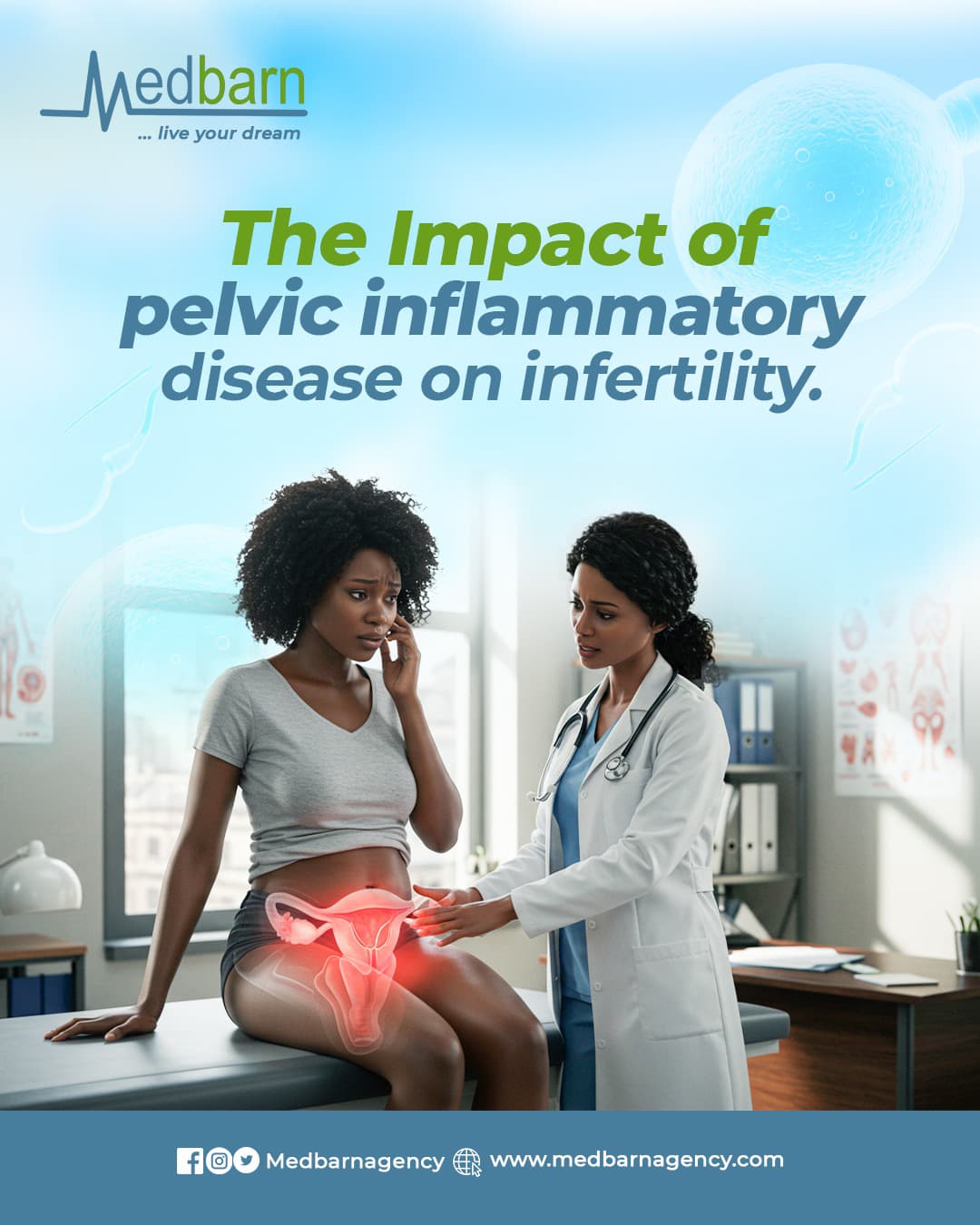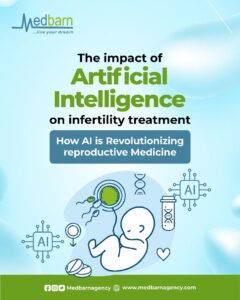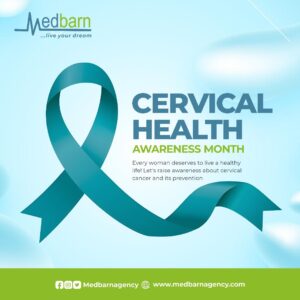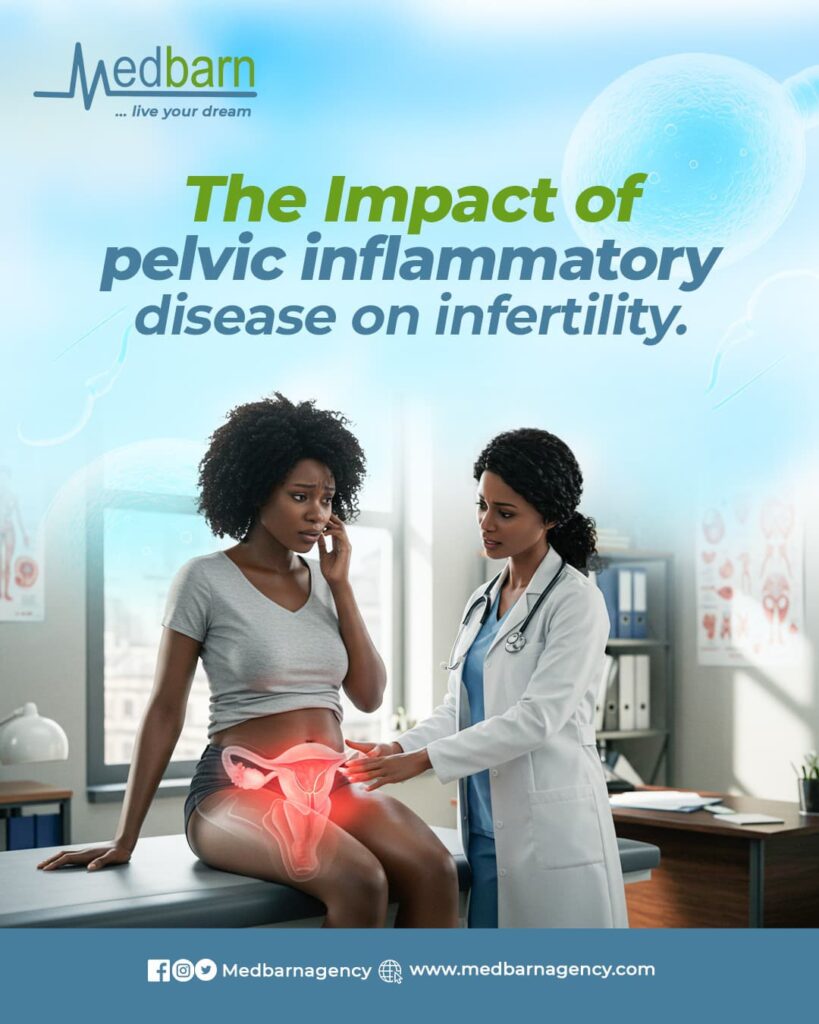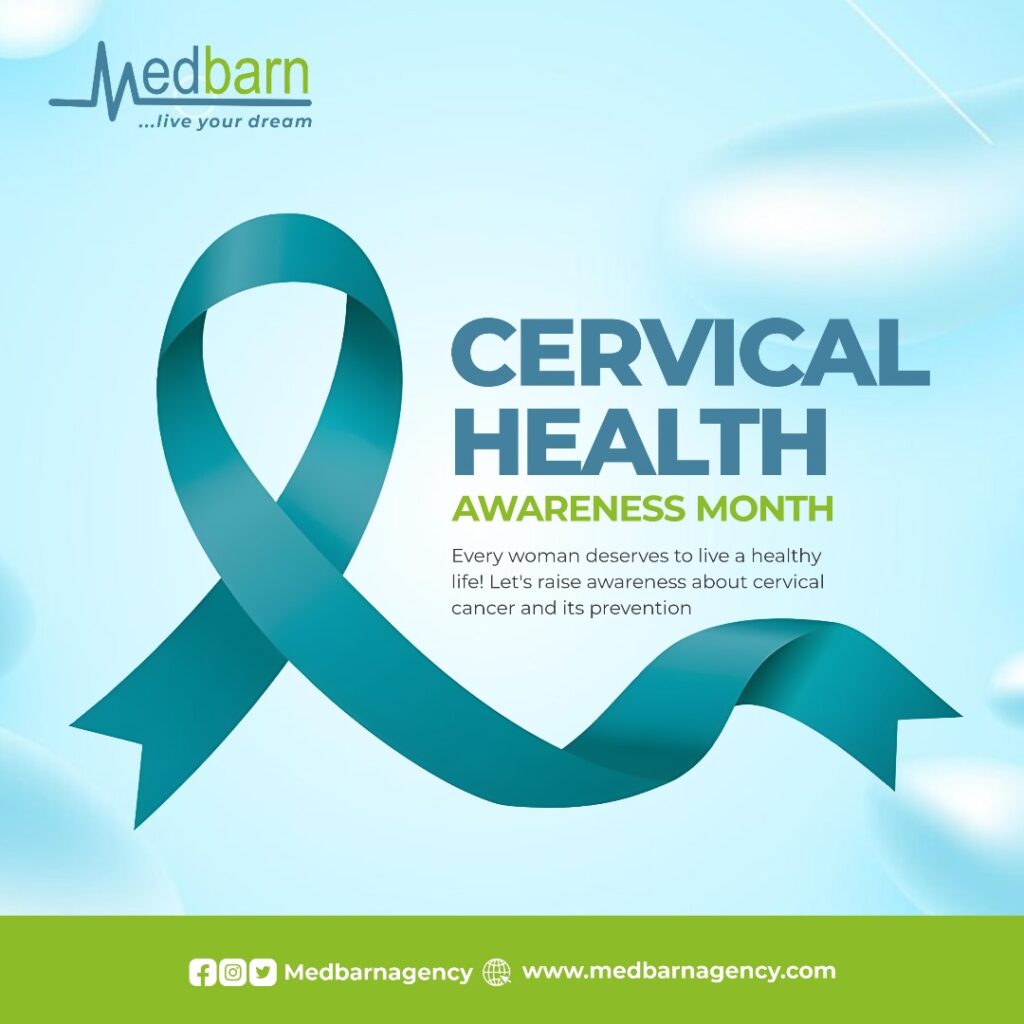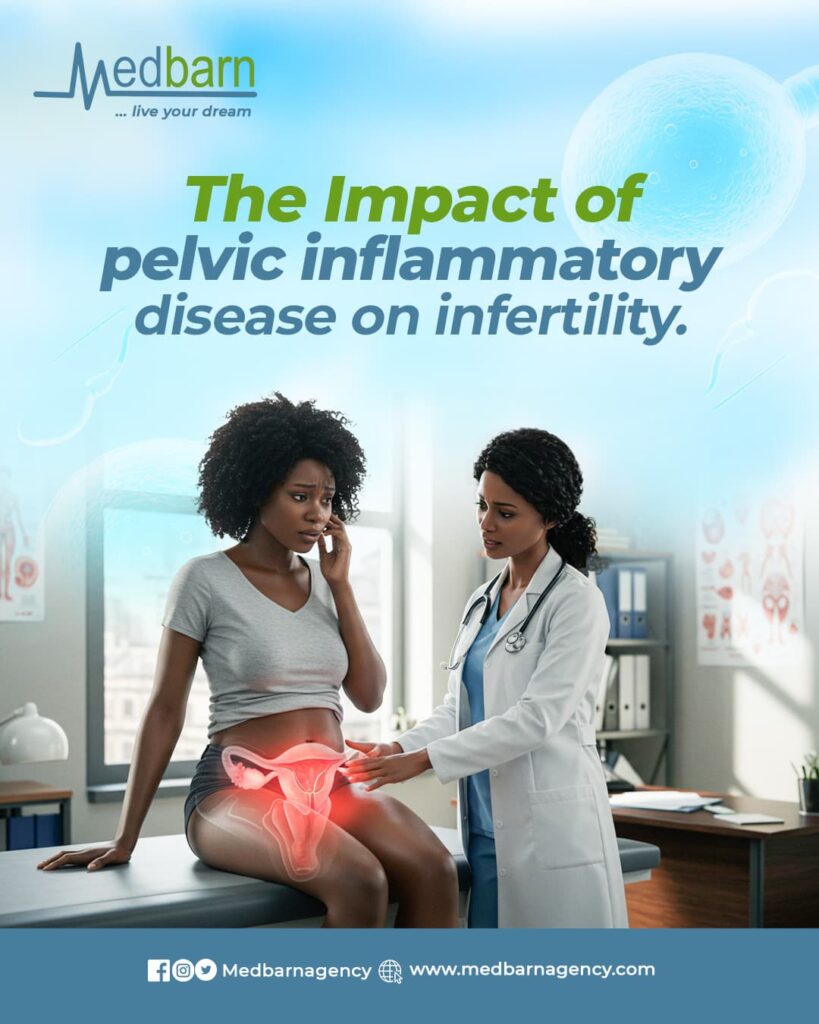
Pelvic Inflammatory Disease (PID) is a serious bacterial infection that affects the female reproductive organs, including the uterus, fallopian tubes, and ovaries. If left untreated or inadequately treated, PID can lead to severe consequences, including infertility.
The following are the various ways PID can affect fertility;
1.Fallopian Tube Damage: PID can cause scarring and blockage of the fallopian tubes, preventing sperm from reaching the egg and fertilization from occurring.
2.Ovarian Damage: The infection can damage the ovaries, leading to a decrease in ovarian reserve and reducing the chances of conception.
3.Uterine Damage: PID can cause scarring and adhesions in the uterus, making it difficult for a fertilized egg to implant.
4.Chronic Inflammatio: Repeated episodes of PID can lead to chronic inflammation, which can damage the reproductive organs and reduce fertility.
However, prevention and treatment options include the following;
- Safe Sex Practice: Using condoms and practicing safe sex can reduce the risk of contracting PID.
- Prompt Treatment: Seeking medical attention promptly if symptoms of PID occur can reduce the risk of infertility.
- Antibiotic Treatment: Effective antibiotic treatment can help clear the infection and reduce the risk of infertility.
In conclusion, Pelvic Inflammatory Disease can have a significant impact on fertility, particularly if left untreated or inadequately treated. Understanding the risks and taking preventive measures can help reduce the likelihood of PID-related infertility. If you suspect you may have PID or are experiencing symptoms, seek medical attention promptly to minimize the risk of infertility.
